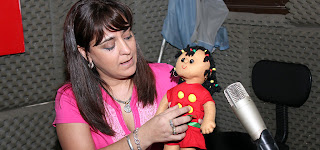Hello, Mediterránea supporters,
As you know last year the playgroup for babies was opened at the school in Abugida. It was a dream finally realised.
The children grow and move up to the next class and new little ones come along and take their place: new toddlers have to be chosen to start at the playgroup next July. Last year there were 30 places available and the number of children who applied was just slightly over this. This year around 170 children have already enrolled in just a few days.
With such an influx of children we have to ask ourselves why the number of registrations has increased so much, if the conditions are the same: children of single mothers, children with HIV, parents with HIV, looked after by grandparents, low incomes and families with large numbers of children.
 The answer is, because they now know of a place where their babies are fed, stimulated and loved whilst they are working in order to provide them with a decent future.
The answer is, because they now know of a place where their babies are fed, stimulated and loved whilst they are working in order to provide them with a decent future.Although it seems obvious that this is the case, it’s not always so in Ethiopia.
Poor people have learned that there is always some catch with everything they are offered, because they don’t trust people who don’t ask for anything in exchange. Since women and children are exploited, no matter how poor or ignorant they are, they no longer believe in promises but in reality. They have now seen for themselves that their children can have a secure start in life with hope for the future. Because nobody is going to hire mothers with babies on their backs.
This leads us to the second part which is much more painful: at the present time there are only 30 places for toddlers aged 1 to 2 in the playgroup. The selection process will take into account the above-mentioned medical and social criteria and we have to do this in person and on site as from 18th April. It’s going to be very difficult because there is just no more room in the school at the present time. We have 215 children, from the age of 1 but we are not even sure what age some of the older children are, because the parents lie about their age in order to be able to enroll them in Abugida which is a pre-school.
 We can build one or two more classrooms for babies if we can get the funding. We also have to “push” up into primary school some of the older children, no matter how happy the children are at Abugida it’s not good for them to leave when they are 10 years old; they get behind starting primary school and therefore in their education. They are at risk of not even finishing primary school as it’s not the same starting when they are 6 than when they are 10. Furthermore most of the children who leave Abugida go to Fitawrari, where we run a school dining room and where they are assured of a place.
We can build one or two more classrooms for babies if we can get the funding. We also have to “push” up into primary school some of the older children, no matter how happy the children are at Abugida it’s not good for them to leave when they are 10 years old; they get behind starting primary school and therefore in their education. They are at risk of not even finishing primary school as it’s not the same starting when they are 6 than when they are 10. Furthermore most of the children who leave Abugida go to Fitawrari, where we run a school dining room and where they are assured of a place. This is why we believe that we should encourage as many babies as possible to enter the school, as they are the most fragile.
Let’s see how we can achieve this….




